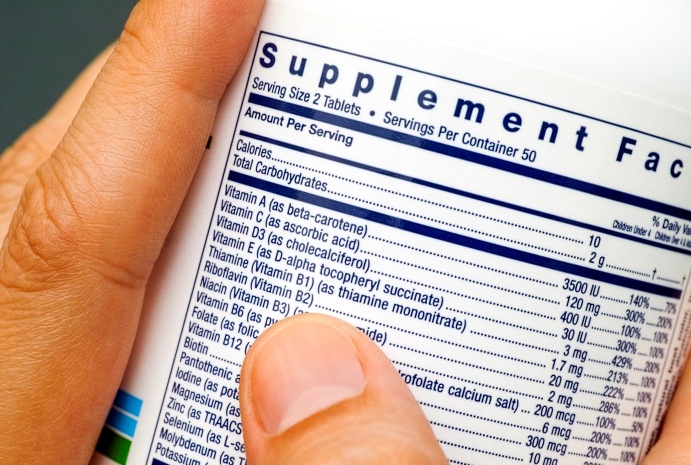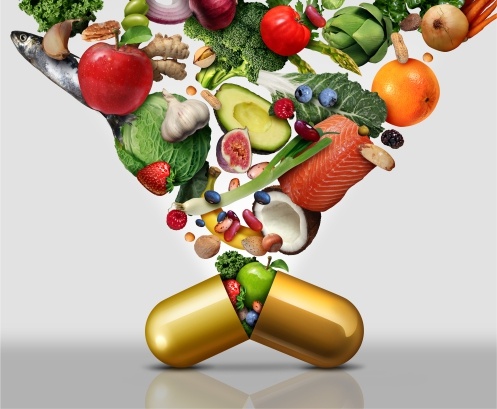

By Stephanie Simons,
Head Pharmacist,
Lindo’s Pharmacy in Devonshire
It’s common knowledge that a varied, nutritious diet is good for your health. A lot of this is down to vitamins. They play a vital role in supporting your body to function at its best, both mentally and physically – and the best way to pack them in is through the food we eat. But what do vitamins actually do? And how do we know if we’re getting everything we need?
Vitamin A
Vitamin A helps maintain your immune system, sight and skin. You can get your dose of Vitamin A through dairy products like cheese and milk, oily fish and also in sources of beta-carotene, like spinach, carrots and sweet potatoes, which the body changes into Vitamin A.
However, it’s equally important not to ingest too much as this can weaken bones and increase your risk of osteoporosis. You should also limit intake when pregnant, including skincare containing Vitamin A (retinol) like Neutrogena Rapid Wrinkle Repair, as this can harm your unborn baby.

Vitamin B
There are many different types of Vitamin B, which is why B-complex supplements like Berocca, Nature’s Bounty or Nature Made B-Complex or Stress formulas are often taken to cover all bases. However, you may be deficient in one or several of the vitamins in particular.
For example, Vitamin B12, or cobalamin, is crucial for neurological function, DNA production and the development of red blood cells – which helps to prevent anaemia. It is found in meat, seafood and dairy, but those who don’t eat (or are intolerant to) these food groups, require supplements like Nature’s Bounty, Nature’s Truth and Nature Made B-12 tablets or Gummies.
Vitamin B9, or folic acid, is also key. Like B12, it helps to ward off anaemia and, during pregnancy, it can help to reduce risks of birth defects in unborn babies. To increase your B9 intake, you can take use supplements labelled Folic Acid or Folate (natural source) or boost the wholegrains, dark leafy vegetables and legumes in your diet.
Vitamin C
Vitamin C is known for its immune-boosting skills, but it also helps maintain healthy skin, blood vessels and bones. A severe lack of Vitamin C can lead to scurvy, but you can easily boost your intake through supplements like Redoxon, Airborne, Haliborange or a variety of fruit and vegetables including oranges, peppers, potatoes and broccoli.
Vitamin D
Vitamin D regulates the amount of calcium and phosphate in the body, both of which are essential to keep bones, teeth and muscles strong and healthy. Deficiencies can lead to bone deformities in children and weak bones in adults, especially older people.
Sunlight is the best source of Vitamin D (though be sure to wear your SPF!) However, if you spend most of your time indoors, it can help to take a supplement like Caltrate, Citracal or Viactiv which also contain calciumto boost levels and protect your bones. Foods like mushrooms and oily fish are also rich in Vitamin D.
Other vitamins
A variety of other vitamins are also important. Found in nuts, seeds and olive oil, Vitamin E helps to maintain healthy skin and eyes, and strengthens the immune system. Meanwhile, Vitamin K, is needed for blood-clotting, so make sure you pack in those green, leafy vegetables and cereal grains!
The easiest way to get all the nutrients you need is to eat a varied diet, full of fresh fruit and vegetables, wholegrains, nuts and seeds. Smoothies are a great way to sneak in everything from spinach to oats, while a stir-fry can include any vegetables you like. If you’re worried you have deficiencies or have questions about nutrition, do speak to your pharmacist or doctor who’d be happy to advise.
Stephanie Simons is the head pharmacist at Lindo’s Pharmacy in Devonshire. She earned her Bachelor of Science in Pharmacy at Massachusetts College of Pharmacy and has been practicing for over 20 years. She is a registered pharmacist with the Bermuda Pharmacy Council and is a member of the Bermuda Pharmaceutical Association.


